Ants are a nuisance, they contaminate nectar and prevent hummingbirds from visiting, it's well worth learning how to keep ants out of hummingbird feeder!
We went to great lengths to create a happy garden that attracts hummingbirds, placing flower beds, birdbaths, and hummingbird feeders. Even make homemade nectar for hummingbird feeders. But ants, like hummingbirds, love sugar. Therefore, it is common for hummingbird feeders to be invaded by ants. If ants get into a hummingbird feeder, the hummingbird will stop getting nectar from the feeder. Today we will show you How to keep ants out of hummingbird feeders. 5 practical tips approved by experts.
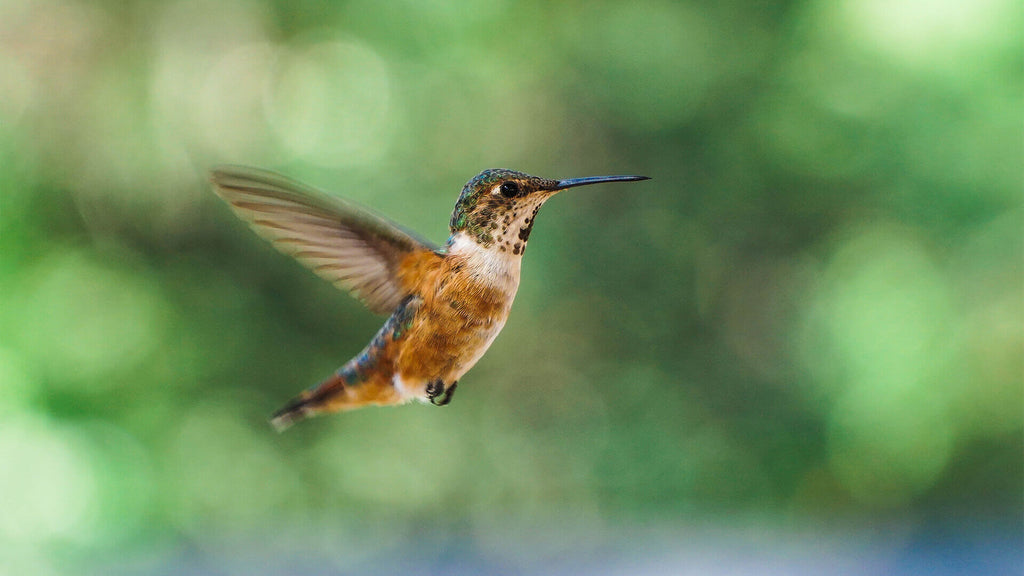
What are the dangers of ants entering hummingbird feeder?
Ants entering hummingbird feeders will cause multiple harms to hummingbirds. The main problems are as follows:
Disturbing hummingbirds: Ants may disturb or scare away hummingbirds that try to drink sugar water from the feeder. An overpopulated ant population may discourage hummingbirds from visiting the feeder.
Contaminating food: Ants may contaminate a hummingbird's food, spoiling it or causing illness. If ants die in the sugar water, it may cause the sugar water to go bad.
Attract other pests: Ants may attract other pests, such as wasps or bees, which may pose a threat to hummingbirds or humans.
Causes waste of resources: Ants eating or taking away the sugar water will cause the hummingbirds to have less food and need to replace the sugar water in the feeder more frequently.
Feeder damage: Ants may chew on or damage hummingbird feeders, resulting in additional costs for maintenance and cleaning.
If you find ants in your hummingbird feeder, consider taking some preventive measures, such as using an ant moat or cleaning your feeder regularly, to keep your feeder clean and prevent ants from entering your hummingbird feeder, protecting the health of your hummingbirds.
Why should we keep ants out of hummingbird feeder?
From the harm caused by ants to hummingbird feeders mentioned above, it is not difficult to conclude that there are the following important reasons to prevent ants from entering hummingbird feeders: First, to protect the purity of hummingbird food, avoid the entry of bacteria and contaminants, and ensure the health of hummingbirds . Second, reduce food waste, as frequent replacement of contaminated food wastes resources. Additionally, providing a hummingbird-friendly environment where they can feed easily increases hummingbird comfort and frequent visits. Finally, preventing ants from entering can reduce bird feeder maintenance costs, as ants can damage the components. Therefore, it is beneficial to both hummingbirds and maintainers to ensure that ants do not enter hummingbird feeders, which can be accomplished by using ant guards or hanging feeders high up where ants cannot reach.
How to keep ants out of hummingbird feeder: 9 Expert-Approved Tips
In order to appreciate these small and beautiful birds, many people install hummingbird feeders in their homes for hummingbirds to enjoy sweet sugar water. However, ants often "break into" this beautiful picture and challenge our patience.
Preventing ants from entering hummingbird feeders is a common problem faced by many bird enthusiasts. Ahead, we’ve put together 5 expert-approved ways to ensure that ants no longer invade your hummingbird feeders while creating a friendlier environment for hummingbird viewing.
1. Use ant moats
The best way to keep ants away from your hummingbird feeder is to choose a feeder with an ant moat (available in our shop), or install a separate ant moat on your existing feeder.
Protect your hummingbird feeder like a castle with an ant moat! Like the moat surrounding a castle, an ant moat is a small body of water that protects hummingbird feeders. Ants are expected to stop in the water of the ant moat, unable to reach the nectar. Be careful during the summer as the water in the ant moat can evaporate quickly. Make sure the ant moat is filled with water to prevent ants from crossing the moat and entering the hummingbird feeder. A dry ant moat is actually no moat at all.
If you don't want to buy an ant moat, there are a number of DIY solutions available to create one yourself using common household items like empty soda bottles, coat hangers, and glue guns.
2. Hang hummingbird feeder from fishing line
Using fishing line to deter ants from entering hummingbird feeders is a proven method. Fishing line is usually very thin, making it nearly impossible for ants to climb, and its surface is slippery, making it more difficult for ants to climb. But make sure the fishing line you choose is strong enough to withstand the weight of the hummingbird feeder and the load of the hummingbirds sitting on it.
First, purchase a suitable roll of fishing line at a camping, fishing or hardware store or online. Make sure the wire you choose can handle at least 2 pounds of weight and is long enough to cover the height you plan to hang the feeder from. Next, secure one end to the feeder and then attach the other end to the pole that supports the feeder. This simple measure can help you effectively prevent ants from entering your hummingbird feeder and protect your hummingbirds' food from contamination.
The above is an effective method for a traditional hummingbird feeder, but is not needed for our smart feeder as it comes with its own ant moat.
3. Clean feeders frequently
When caring for hummingbirds and providing them with an exquisite dining experience, it is important to keep feeders clean to prevent ants from invading and taking over the feeders. At the same time, it is also crucial to keep the nectar clean and fresh.
When you add nectar to hummingbird feeders, they should be wiped daily. It becomes a ritual where you take the time to clean the inside and outside of the feeder to make sure there are no leaks before filling it with new nectar. Such maintenance habits help provide hummingbirds with clean, nutritious food.
The best way to keep ants away from your hummingbird feeders is to keep them clean! Ants are generally attracted to sweet, sticky foods, with one exception (we'll talk more about that later). Therefore, it is very important to clean the feeder regularly.
Another reason for regular cleaning is that it's not just ants that may be infesting your feeder, but other insects as well. Insects such as bees and wasps are also fans of hummingbird nectar, and they have a big advantage: they can fly! Your feeder may also attract insects such as moths, flies, wasps, and more. Few people want to see these pests at their bird feeders.
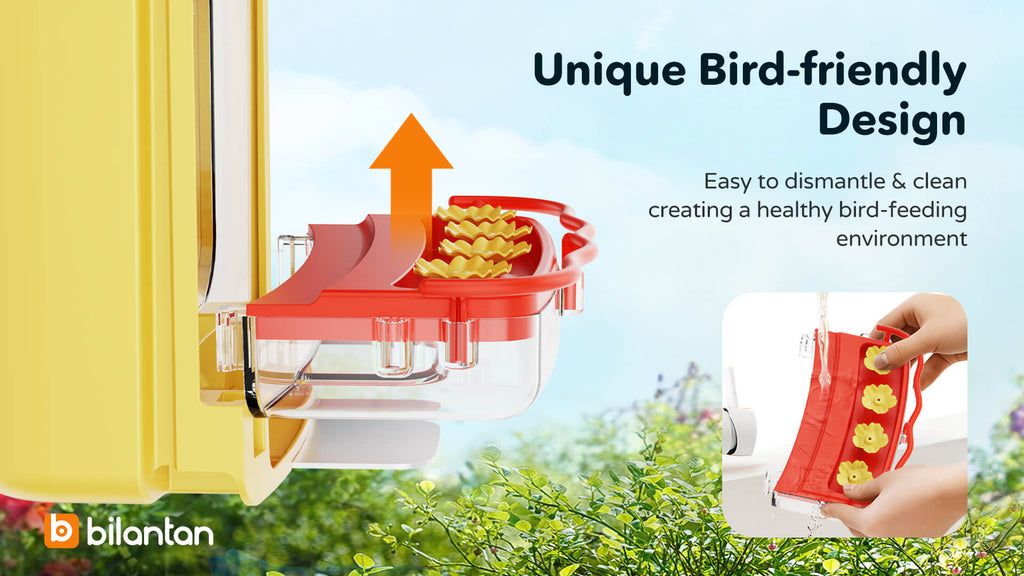
So let’s keep things simple. Look for feeders that are easy to clean and either have simple construction or have removable parts. Our smart bird feeders can be easily disassembled for cleaning, making cleaning easier for bird lovers. Remember to clean your feeder with non-toxic detergent and warm water, then wipe dry. If you miss a few days or notice nectar clumping, you can mix dish soap with hot water and soak the feeder for an hour or two to loosen any buildup.
4. Try bay or mint leaves
So ants are a bit like children, they like sweets but have little interest in vegetables. We can use plants to repel ants. Ants don't like the smell of bay leaves, so placing or rubbing bay leaves on or around hummingbird feeders is an effective way to repel them. Another natural ant repellent is mint leaves that can be used to protect feeders.
You can tie some bay or mint leaves to your hummingbird feeder. A better approach is to plant mint around your hummingbird feeder to keep ants away.
Growing mint in the garden is very simple. In fact, mint can grow quite luxuriantly. To prevent ants from disturbing your hummingbirds, you can get some mint seeds and scatter them where you want them to grow, such as on your windowsill, in your herb garden, or even in a small planter on your patio.
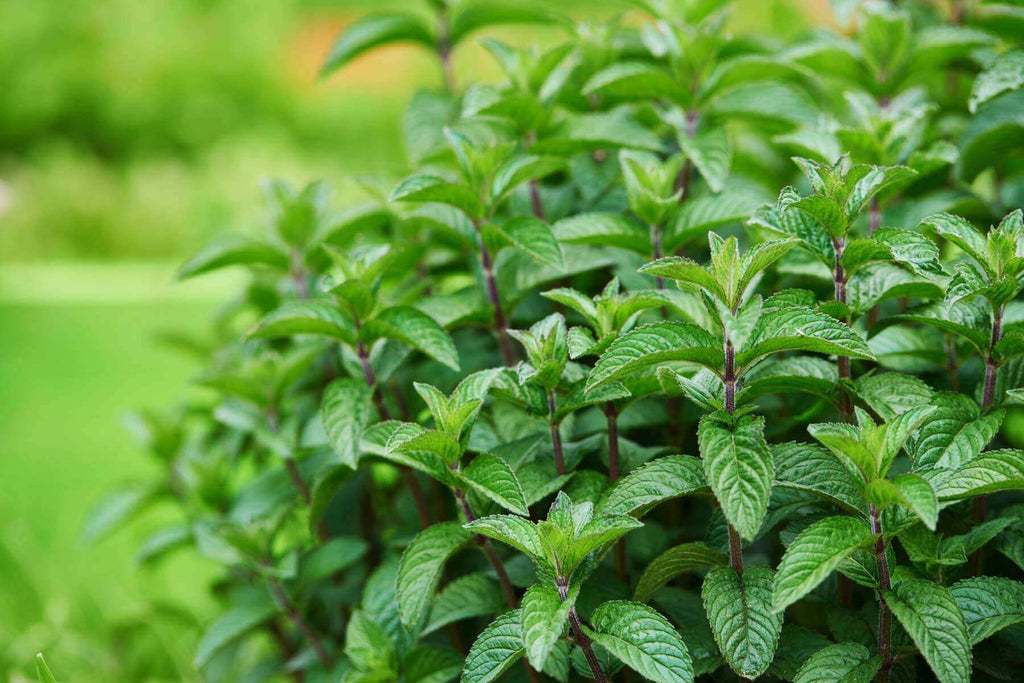
Mint plants only need the right amount of water and fertile soil to thrive. Although it prefers some shade, it can also thrive in full sun as long as the soil is kept moist.
5. Change the location of the feeder
Moving hummingbird feeders to different locations in the garden regularly will keep the ants on their toes. This method prevents ants from coming back for more food, since ants often leave scent clues to notify other ants of a tasty source of sugar water.
Find some places where you can install feeders and change their locations regularly. This, combined with other bird feeding tips, can keep ants away. Hummingbirds are often adaptable and can find new feeder locations, but make sure when moving your hummingbird feeder that you don't just pick it up and move it around.
When it's time to move feeders, be sure to keep them at least 7 feet apart. Don't place one feeder too close to another, keep them separate in the garden. A good location is near some small trees (if there are any), as hummingbirds like to find safe places nearby to roost or hide.
How to Do It:
- Strategic Relocation: When moving your feeder, place it at least 7 feet away from its previous location. This distance helps disrupt the ants' scent trails, making it harder for them to relocate the feeder.
- Create Multiple Feeding Stations: If you have more than one hummingbird feeder, space them far apart. This reduces the chances of ants overwhelming any single feeder.
- Don’t Overdo It: While occasional relocation helps deter ants, avoid moving the feeder too frequently. Hummingbirds rely on memory and landmarks to locate their food source, so balance ant prevention with the birds’ ability to find the feeder consistently.
6. Check Your Hummingbird Feeder Regularly
If your hummingbird feeder has leaks, it can attract ants and other pests. Regularly inspecting your feeder can help you identify and fix any issues before they become a problem.
Quick Tip:
- Inspect your feeder frequently: Heat and weather can cause cracks or leaks over time. Check your feeder regularly, especially after storms or intense sun exposure.
- Use sealing materials: If you find small cracks, use a silicone sealant to patch them up. Ensure the area is clean and dry before applying any adhesive to prevent nectar from leaking.
- Choose durable feeders: Opt for high-quality feeders designed to withstand outdoor conditions. Sturdy materials can help prevent damage, reducing the need for frequent repairs.
By checking your feeder routinely and addressing issues promptly, you can keep ants, bees, and wasps away while ensuring a steady supply of nectar for hummingbirds.
7. Place Your Feeder Near Water
Ants have difficulty crossing bodies of water, making it an effective deterrent. If you have a birdbath, pond, or fountain in your garden, positioning your hummingbird feeder near or above it can help keep ants away from the nectar.
Why Water Works:
- Acts as a natural barrier: Ants cannot swim or fly long distances over water, making it harder for them to reach the feeder.
- Enhances garden aesthetics: Placing your feeder near a water feature can create a more visually appealing space for you and your guests.
- Ensure that your birdbath or fountain is well-maintained to prevent mosquito breeding and algae buildup, keeping the environment fresh and inviting.
8. Use Ant-Proof Hooks
There are specially designed ant-proof hooks available on the market that feature unique structures to prevent ants from crossing. These hooks create a physical barrier, making it difficult for ants to reach the feeder. Using an ant-proof hook is a simple and effective way to keep your hummingbird feeder free from unwanted pests.
9. Use Double-Sided Tape
Wrapping double-sided tape around the feeder’s hanging rod or support structure creates a sticky barrier that traps ants as they try to climb. Since ants get stuck on the adhesive, they are unable to reach the nectar. To maintain effectiveness, replace the tape regularly, as dust and debris can reduce its stickiness over time. This is a simple and non-toxic method to keep ants away from your hummingbird feeder.
Frequently Asked Question
Q: Will petroleum jelly or vegetable oil keep ants away from hummingbird feeders?
A: While some people try to use grease to smoothen the surface of their bird feeders to deter ants, wildlife experts strongly advise against this. Zach Hutchinson notes: "Please do not use grease to prevent ants from crawling on hummingbird feeders! Grease or oil can have a fatal effect on hummingbirds if they adhere to them."
These oils may affect hummingbirds' ability to control their feathers, interfering with their thermoregulation. If thermoregulation is disrupted, hummingbirds may suffer from problems such as hypothermia or heat stroke for a short period of time. Additionally, this method can be cruel to ants and other beneficial insects, such as bees and butterflies.
These problems with hummingbird feeders can be avoided by following proper bird feeder maintenance steps, from routine cleaning to careful location selection.
Where to buy ant-proof bird feeders?
What a treat it is to enjoy native birds in the sweet sanctuary you create in your own backyard. Attracting the birds you want to visit means buying the right bird feeders, so let us make sure you know where to look.
Our store is the best of both worlds, with high quality hummingbird friendly bird feeders at super reasonable prices just a few clicks away. You may need to employ some of our tips to keep ants away from your hummingbird feeder, but by purchasing the right feeder in our store, you'll be one step ahead. Each of our items is designed specifically for birds with their various needs in mind. So you know when to choose the right feeder for your hummingbird friends.

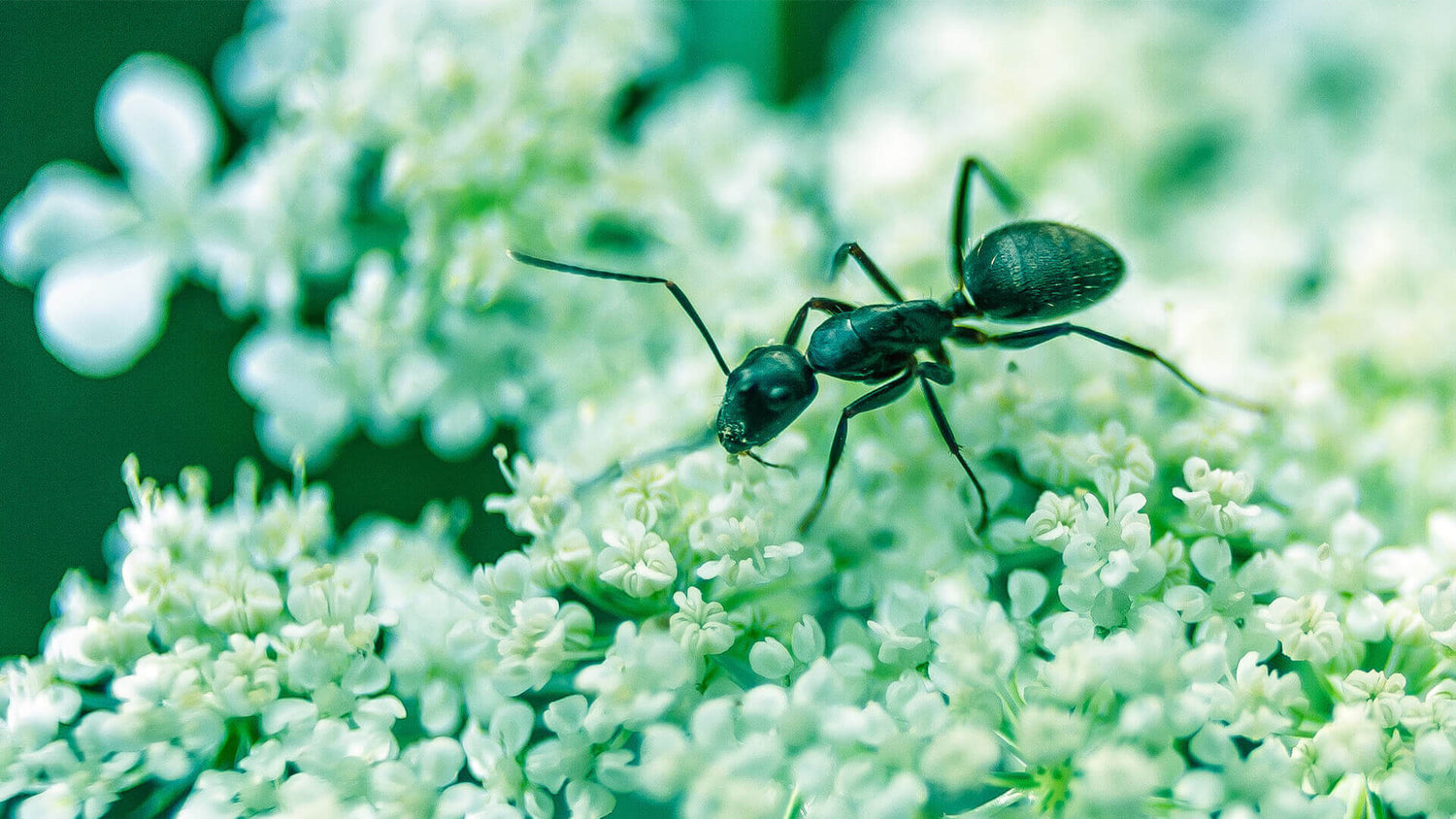
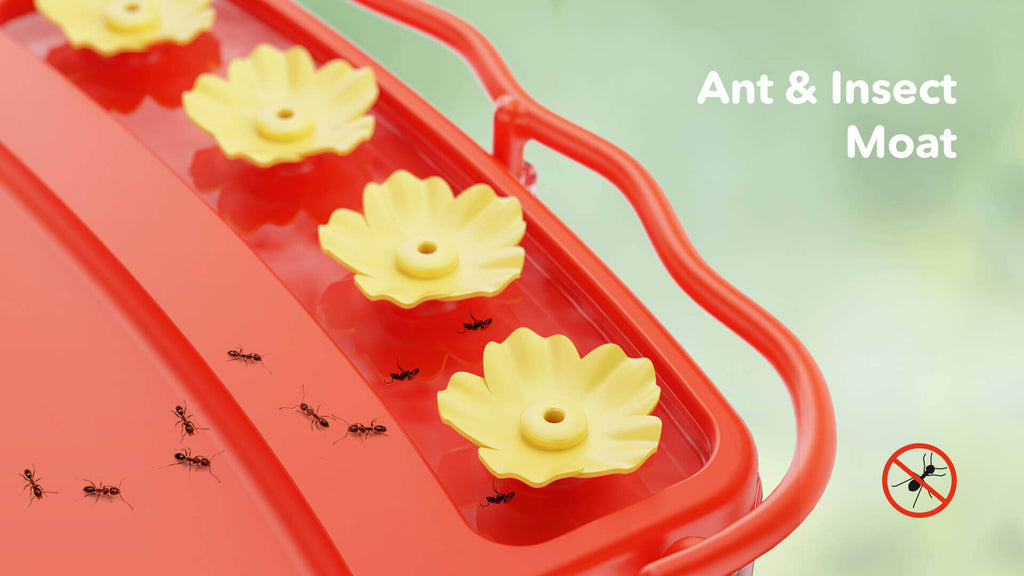
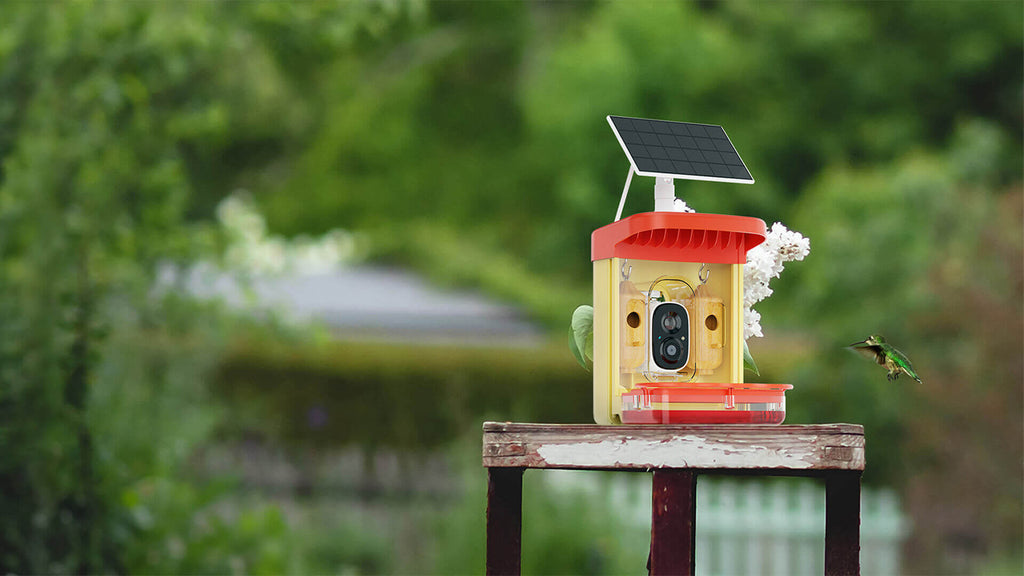
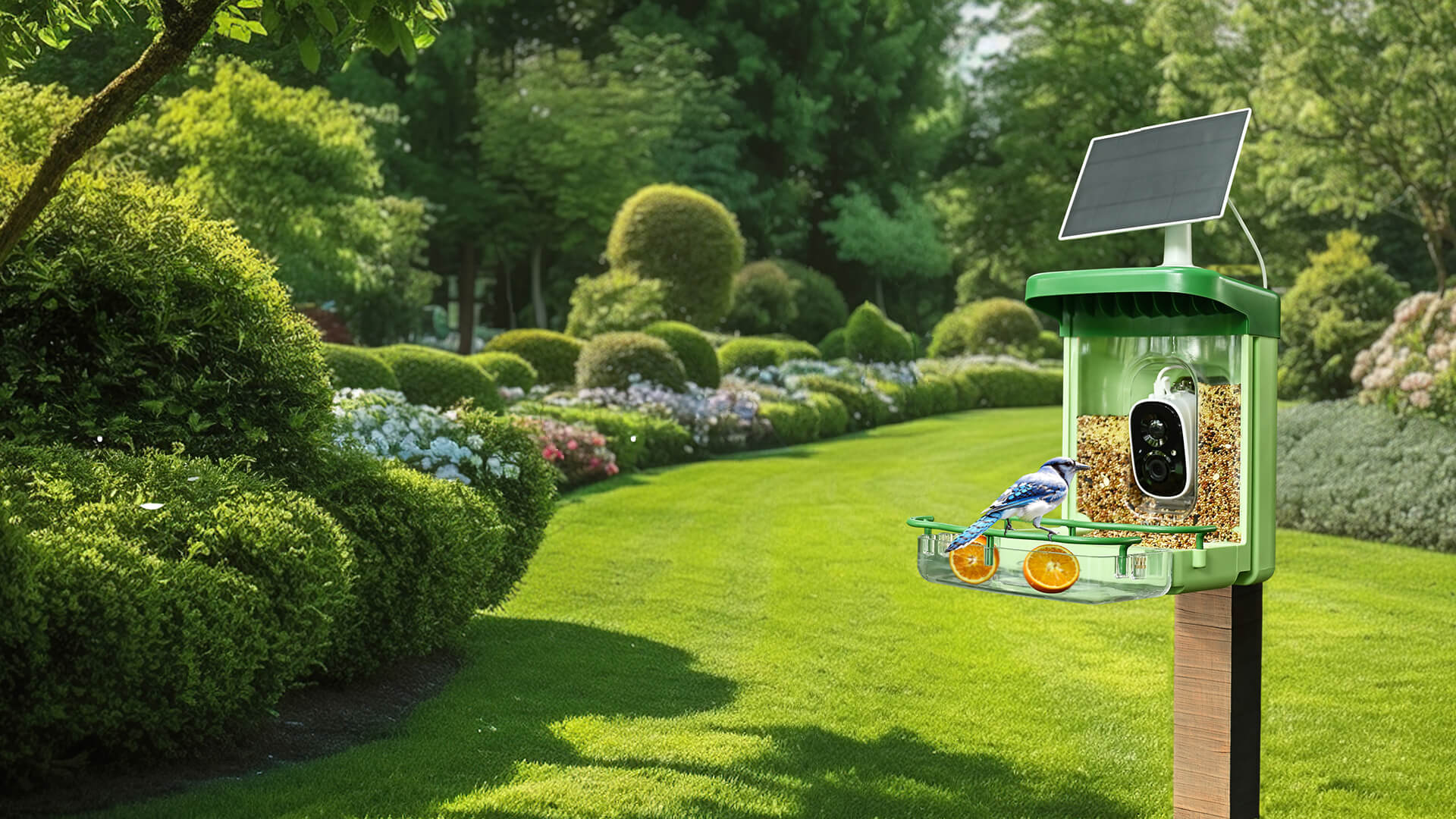
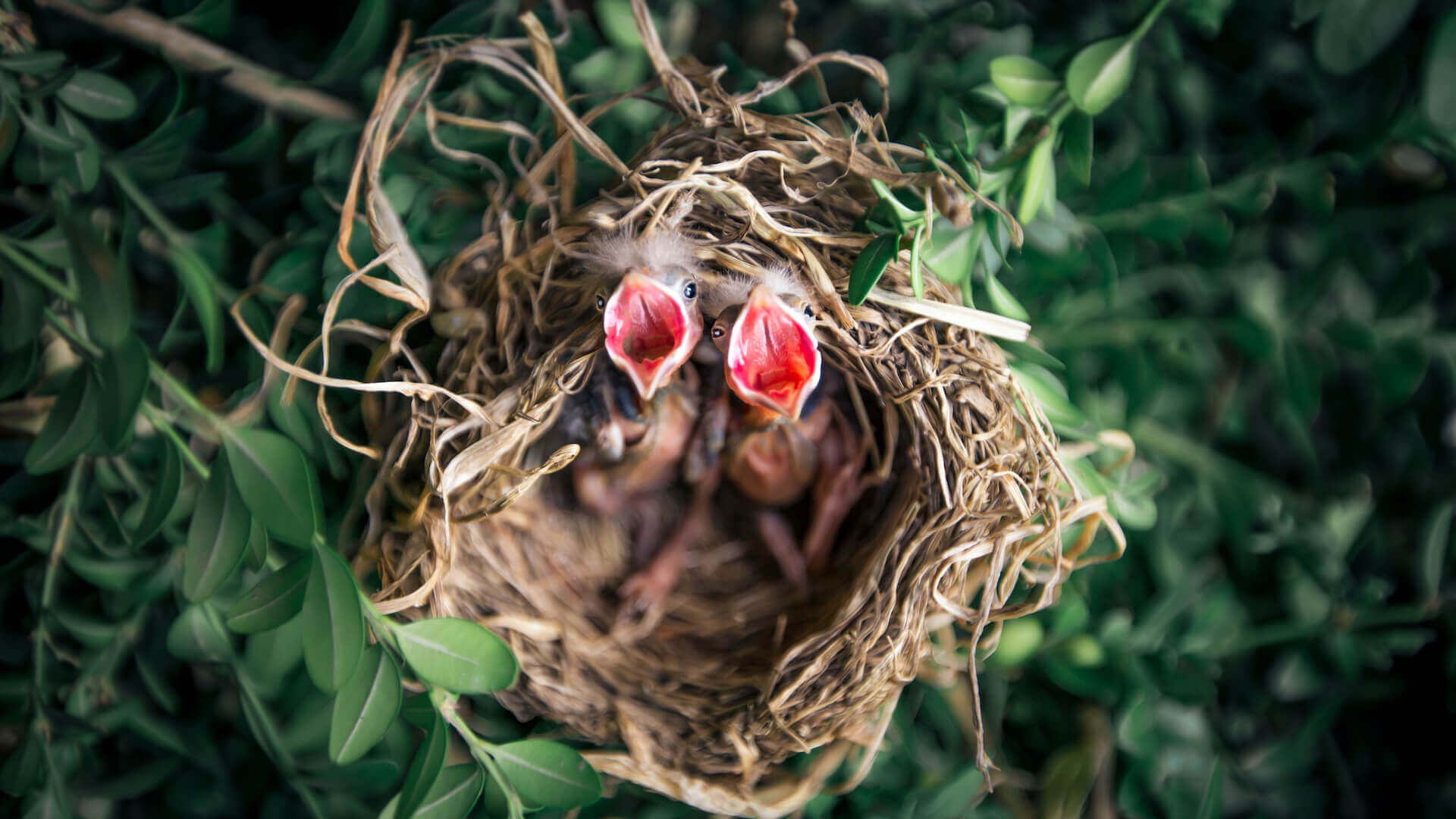
8 comments
Carrie Knouse
You also can make a ant trap out of a soda bottle and hang it above your feeder works like a dream. Did it years and no longer with ants problems.
Keith
I hang my hummingbird feeders on shepherds hooks and rub chalk at the base of shepherd hook and for some reason the ants won’t cross the chalk
Shirley Good
Happy to find you . So excited for my 2nd year coming up for the treasure of these precious birds .
SciTeacher
I appreciate how this article offers a range of solutions to the ant problem in hummingbird feeders. The tips are not only practical but also environmentally friendly. The suggestion of using bay or mint leaves as a natural deterrent is brilliant! Now I can enjoy watching hummingbirds without worrying about pesky ants.
Jesus Robles
The inclusion of frequently asked questions in this article is a great addition. It addresses common concerns and provides further guidance on dealing with ants in hummingbird feeders. The information about where to buy ant-proof bird feeders is particularly helpful. Thank you for the comprehensive guide!
Leave a comment
All comments are moderated before being published.
This site is protected by hCaptcha and the hCaptcha Privacy Policy and Terms of Service apply.